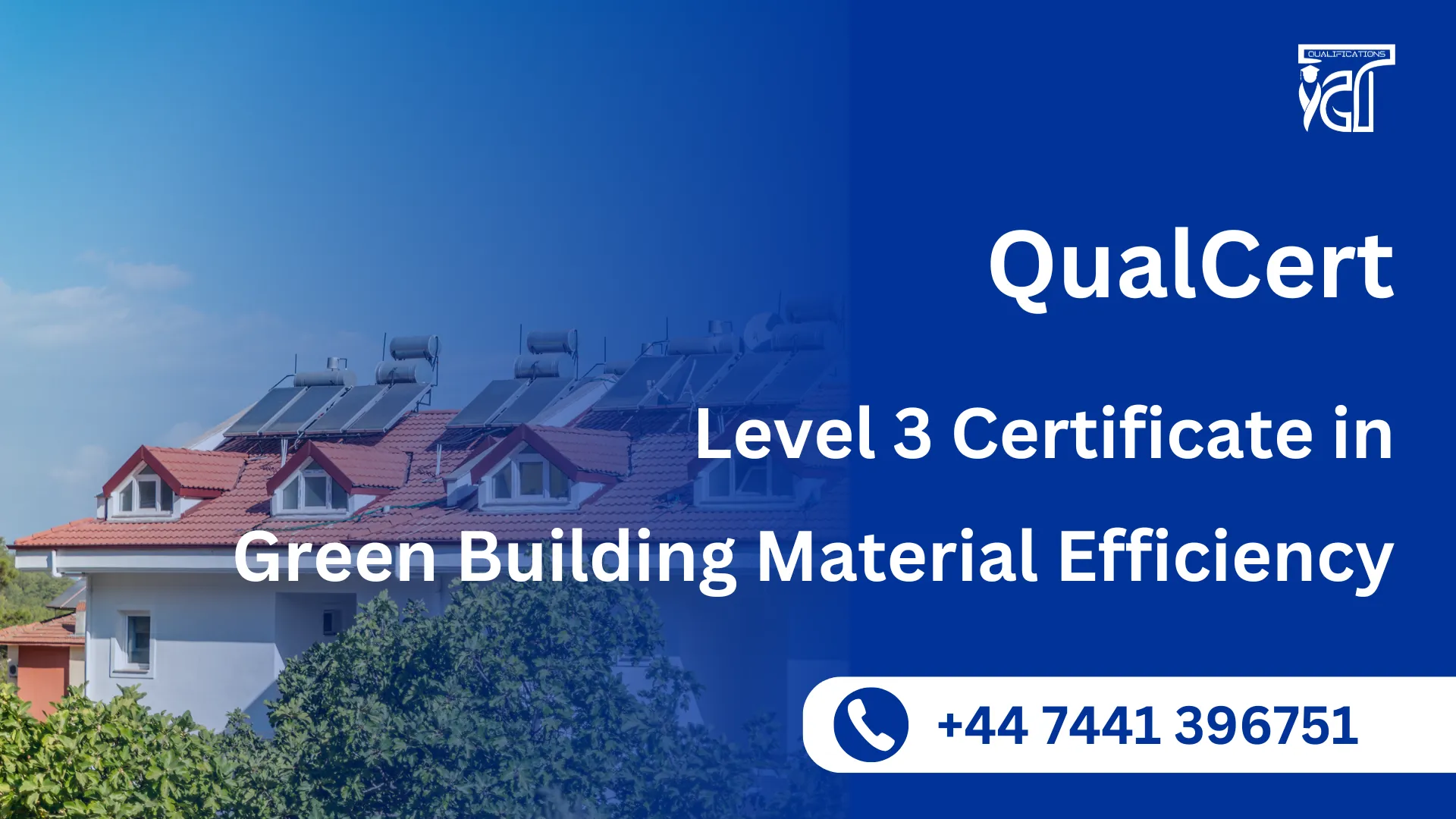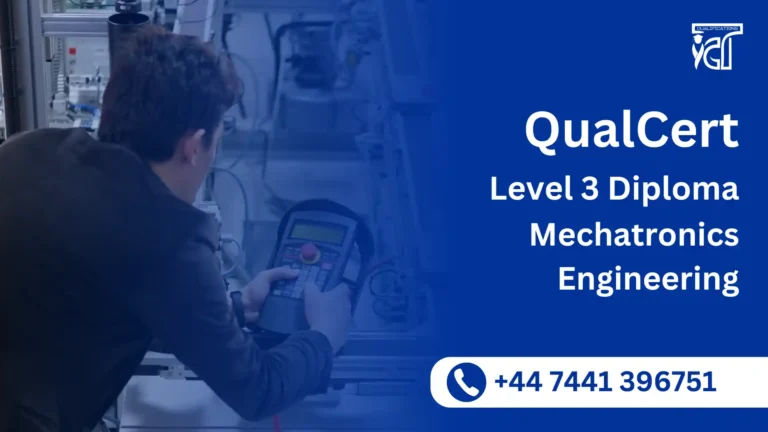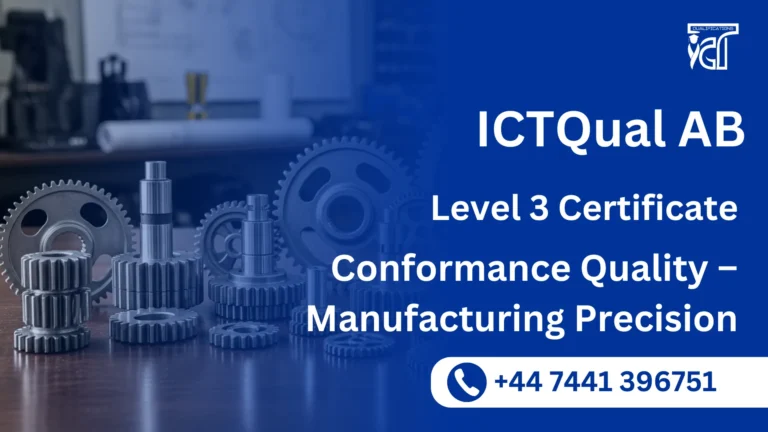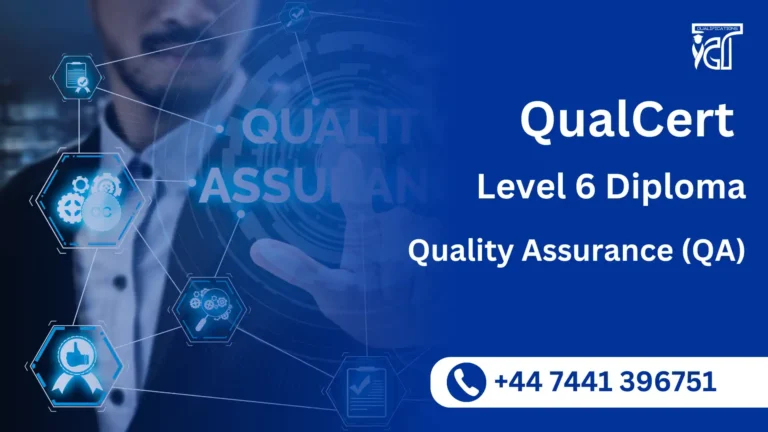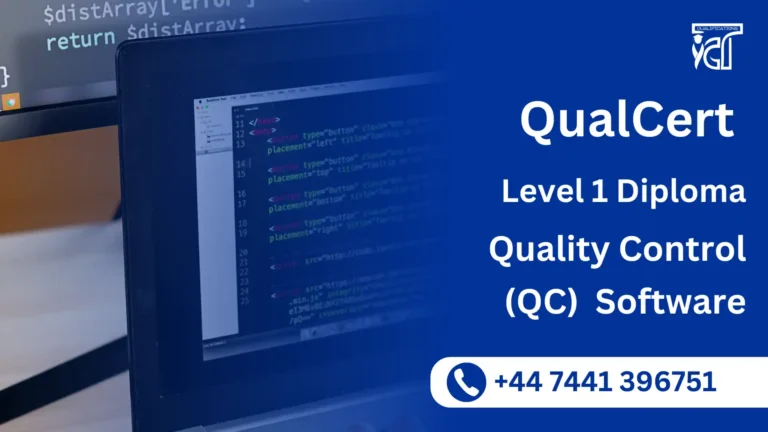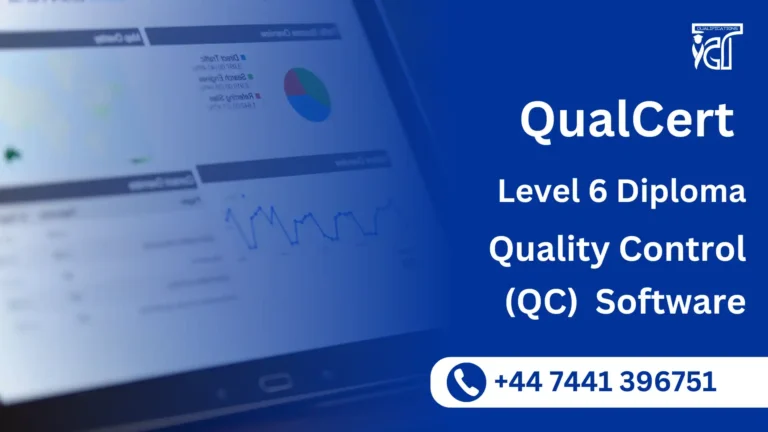As the global construction industry faces rising pressure to reduce its environmental footprint, material efficiency has emerged as a core pillar of sustainable building design and project delivery. Efficient use of materials not only lowers costs and carbon emissions but also supports circular economy principles and sustainable development goals.
The QualCert Level 3 Certificate in Green Building Material Efficiency equips construction professionals with the expertise to optimize material use across all stages of the building lifecycle—from design and procurement to on-site implementation and waste reduction. This highly relevant qualification prepares industry professionals to lead greener, more resource-conscious construction projects that meet modern environmental standards.
This nationally recognized certification focuses on improving resource efficiency and sustainable material management in the built environment. The course covers essential strategies for minimizing material waste, selecting sustainable products, and integrating material efficiency into green building frameworks such as BREEAM, LEED, and ISO 14001.
This course aligns with national and international environmental goals, including the UK Government’s Net Zero Strategy and the Construction Leadership Council’s Roadmap to Zero Avoidable Waste by 2050. By gaining this certification, professionals contribute directly to a lower-carbon, lower-waste construction future.
The QualCert Level 3 Certificate in Green Building Material Efficiency is a powerful credential for forward-thinking construction professionals. It offers the knowledge and skills needed to reduce waste, cut costs, and enhance the environmental performance of buildings throughout their lifecycle.
By mastering material efficiency, you position yourself as a leader in sustainable construction—creating long-term value for your projects, your clients, and the planet.
QualCert Level 3 Certificate in Green Building Material Efficiency
The QualCert Level 3 Certificate in Green Building Material efficiency offers 20 Credits, requiring a Total Qualification Time (TQT) of 100 hours, including 70 Guided Learning Hours (GLH).This course explores sustainable material selection and waste reduction.
| Unit Ref# | Unit Title | Credit | GLH | TQT |
| QC18005-1 | Sustainable and Recyclable Building Materials | 4 | 14 | 20 |
| QC18005-2 | Life Cycle Analysis of Construction Materials | 4 | 14 | 20 |
| QC18005-3 | Low-carbon and Locally Sourced Materials | 4 | 14 | 20 |
| QC18005-4 | Advanced Building Material Technologies | 4 | 14 | 20 |
| QC18005-5 | Material Efficiency Standards and Certifications | 4 | 14 | 20 |
GLH (Guided Learning Hours) and TQT (Total Qualification Time) are terms commonly used in vocational qualifications to help define the amount of time a learner is expected to spend on their studies.
1. GLH (Guided Learning Hours)
GLH refers to the number of hours a learner spends being directly taught, supervised, or supported during their course. This includes the time spent in activities such as:
- Classroom instruction
- Practical workshops
- One-on-one tutoring or mentoring sessions
- Online learning sessions with tutor support
In other words, GLH represents the time that learners are actively engaged with their instructors or learning activities.
2. TQT (Total Qualification Time)
TQT represents the total amount of time a learner is expected to invest in completing a qualification, including:
- GLH (Guided Learning Hours): Time spent on direct learning, as explained above.
- Self-Directed Learning: This includes time spent on independent study, research, assignment completion, preparation for exams, and any other work the learner does outside of direct teaching hours.
TQT is a broader measure that includes all the time required to achieve the qualification. It helps learners and employers understand the overall commitment required for the qualification.
Key Differences Between GLH and TQT:
- GLH focuses on direct learning with guidance or supervision.
- TQT includes GLH as well as independent study time and other learning-related activities.
Example:
If a qualification has a TQT of 600 hours and a GLH of 250 hours, it means the learner should spend 250 hours in direct learning (classroom, online, or tutor-led sessions) and 350 hours on independent study or research.
Learning Outcomes of QualCert Level 3 Certificate in Green Building Material efficiency:
Upon successful completion of the study units in the QualCert Level 3 Certificate in Green Building Material Efficiency, learners will be able to:
Sustainable and Recyclable Building Materials
- Identify and evaluate sustainable and recyclable building materials that reduce environmental impact.
- Understand the environmental benefits of using renewable, recyclable, and biodegradable materials in construction projects.
- Apply knowledge of sustainable materials in design and construction to promote eco-friendly building practices.
Life Cycle Analysis of Construction Materials
- Understand how LCA can be used to select materials with the least environmental footprint throughout their lifecycle.
- Use LCA data to make informed decisions on material selection that align with sustainability goals and regulations.
Low-carbon and Locally Sourced Materials
- Recognize the benefits of using low-carbon and locally sourced materials in reducing a building’s carbon footprint.
- Evaluate the impact of transporting materials and the environmental advantages of using locally sourced resources.
- Develop strategies to incorporate low-carbon materials into building designs, supporting sustainable construction practices.
Advanced Building Material Technologies
- Understand the latest innovations in building materials, including smart materials, nanomaterials, and energy-efficient products.
- Analyze the potential of advanced materials to improve building performance, energy efficiency, and sustainability.
- Apply advanced material technologies in building projects to optimize energy use and resource conservation.
Material Efficiency Standards and Certifications
Benefits of the QualCert Level 3 Certificate in Green Building Material Efficiency
1. Expertise in Sustainable Material Use
Gain advanced knowledge of how to select, source, and use building materials efficiently—reducing environmental impact while maintaining quality and performance.
2. Reduced Construction Waste and Costs
Learn practical strategies to minimize material waste on-site, avoid overordering, and lower procurement and disposal costs, resulting in leaner, more cost-effective projects.
3. Support for Green Building Certifications
Earn material efficiency credits toward sustainability frameworks like BREEAM, LEED, WELL, and ISO 14001, enhancing the sustainability profile of your projects.
4. Compliance with Environmental Regulations
Understand and apply UK and EU legislation on sustainable procurement, waste reduction, and circular economy practices to ensure regulatory compliance.
5. Improved Supply Chain and Resource Management
Develop skills to assess product life cycles, promote responsible sourcing, and work with suppliers to achieve sustainability and material traceability goals.
6. Competitive Career Advantage
Stand out in the construction and sustainability sectors with a recognized qualification that demonstrates your commitment to material efficiency and responsible building practices.
7. Enhanced ESG Performance
Contribute directly to your organization’s Environmental, Social, and Governance (ESG) objectives by implementing resource-efficient strategies that reduce carbon footprints and support circularity.
8. Optimized Building Performance and Lifecycle Value
Improve the long-term sustainability and cost-efficiency of buildings by specifying materials with low embodied carbon and high durability.
9. Flexibility for Working Professionals
Benefit from a blended learning model that includes online modules, expert workshops, and real-world assessments—designed to fit around your schedule and work commitments.
10. Leadership in Sustainable Construction
Become a driver of change in your organization by leading the implementation of material-efficient design, procurement, and construction practices.
Who Is This Course Best Suited For?
The QualCert Level 3 Certificate in Green Building Material Efficiency is specifically designed for professionals involved in the planning, specification, procurement, and use of construction materials. It is ideal for individuals and teams aiming to reduce material waste, lower carbon emissions, and improve the overall sustainability of their projects.
This qualification is the perfect fit for those seeking to integrate resource efficiency, circular economy principles, and sustainable construction practices into their day-to-day operations.
Best suited for:
- Construction Project Managers & Site Supervisors
Who oversee material use on-site and aim to reduce waste while improving operational efficiency. - Sustainability Consultants & Environmental Managers
Seeking to implement low-carbon material strategies and earn green building certification credits. - Architects, Engineers & Building Designers
Who want to make informed decisions about material selection, embodied carbon, and lifecycle performance. - Procurement Officers & Supply Chain Managers
Focused on sourcing sustainable, traceable building materials aligned with ESG and compliance goals. - Quantity Surveyors & Cost Planners
Looking to balance cost efficiency with sustainability in material estimation and usage. - Facilities Managers & Asset Managers
Responsible for long-term building performance and the environmental impact of material choices. - Contractors & Builders
Who want to meet client sustainability requirements and improve competitiveness in eco-conscious tenders.
Whether you’re working in residential, commercial, or infrastructure projects, this course provides essential skills to align your work with today’s environmental expectations and tomorrow’s construction standards.
Entry Requirements
Register Now
Qualification Process
Qualification Process for the QualCert Level 3 Certificate in Green Building Material Efficiency
- Self-Assessment:
Begin by evaluating your eligibility to ensure you meet the qualification requirements, including work experience, knowledge, and language proficiency. - Registration:
Complete your registration by submitting the required documents, including a scanned copy of a valid ID, and paying the registration fee. - Induction:
An assessor will conduct an induction to confirm your eligibility for the course and explain the evidence requirements. If you do not meet the criteria, your registration will be canceled, and the fee will be refunded. - Assignmnets & Evidence Submission:
Provide all assignmnets and the necessary evidence based on the assessment criteria outlined in the course. If you are unsure of the required evidence, consult with the assessor for guidance on the type and nature of evidence needed. - Feedback and Revision:
The assessor will review your submitted evidence and provide feedback. Evidence that meets the criteria will be marked as “Criteria Met,” while any gaps will be identified. You will be asked to revise and resubmit if needed. - Competence Evidence:
Submit final evidence demonstrating that all learning outcomes have been met. This evidence will be marked as “Criteria Met” by the assessor once it is satisfactory. - Internal Quality Assurance (IQA):
The Internal Quality Assurance Verifier (IQA) will review your evidence to ensure consistency, quality, and compliance with standards. - External Verification:
The IQA will submit your portfolio to QualCert External Quality Assurance Verifiers (EQA) for final confirmation. The EQA may contact you directly to verify the authenticity of your evidence. - Certification:
Upon successful completion of all checks, QualCert will issue your official certificate, confirming that you have attained the QualCert Level 3 Certificate in Green Building Material Efficiency.

